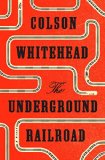What are your impressions of John Valentine's vision for the farm?

 What are your impressions of John ...
What are your impressions of John ...
Created: 10/27/16
Replies: 14
Join Date: 10/15/10
Posts: 3442
Join Date: 02/20/13
Posts: 103
Join Date: 03/04/13
Posts: 16
Join Date: 06/13/11
Posts: 107
Join Date: 04/23/11
Posts: 118
I too think that John Valentine was trying to create a Utopia, where everybody was equal and all contributed to the well-being of the farm. In that microcosm the concept works. Unfortunately, the real world intrudes and that causes the destruction of the farm.
It kind of reminds me of how isolationist America was before we got involved in WWII. It's a good theory to just take care of yourself; unfortunately, the world just won't let it be that way. Even today some people feel the need to pull back from the rest of the world and take care of our own problems. But we don't live in little villages with no outside contact anymore. The entire world is connected and that means we have to take care of and watch out for each other.
Join Date: 02/04/16
Posts: 77
I saw the farm as providing a transition from slavery to freedom and learning what it takes to live free. It seemed like a safe place that changed. Valentine was there nearly alone at first, and then more and more settlers came. That changed the dynamic in the area, and was devastating.
Join Date: 01/25/16
Posts: 193
John Valentine was a visionary who wanted to provide a safe haven, where all would feel welcome, feel safe, and be able to live among their community as equals. Because of the community's growth, it did seem as though it was working. But, tragically, others had their own motivations and selfish reasons for seeing that didn't happen. John Valentine was a dreamer, ahead of his time. But his dream gave hope to the many residents, something that most of them had never experienced before.
Join Date: 02/05/16
Posts: 381
I do not feel his vision was utopian; it was a workable vision of community, not unlike many that have worked for white people throughout history, from the Puritans on... It also echoes some communal efforts of the abolition movement among others, and the Civil Rights movement, with Valentine, and Landers, in their speeches echoing Martin Luther King Jr. and the same debate over "gradual" or immediate progress. Whitehead is amazing at taking an element of history and using it also as a symbol of the present day. So his visionary farm-- a place where freeborn blacks and former slaves all gather and debate their future-- is also, for me, a symbol of dialogue and debate among Americans of color today (especially during this year's election ) about the best way for them to share in the "American dream." And in a larger sense, a vision of America black and white sharing more fairly in the national economy, and the author's plea for brotherhood and collective action, as expressed by Landers:"All I truly know is that we rise and fall as one, one colored family, living next door to one white family. We may not know the way through the forest, but we can pick each other up when we fall, and we will arrive together."
Join Date: 04/18/12
Posts: 73
The thing that interested me most in the chapter about John Valentine's farm was the debate between Mingo and Lander. It reminded me of the different approaches of people like Booker T. Washington versus WEB DuBois or MLK versus Malcolm X.
Join Date: 10/13/11
Posts: 135
I think that the author was trying to portray a farm where all the slaves could transition. This idea just like the "real" railroad perhaps was trying to give us a clearer picture of what the slaves were experiencing. I have never heard about any of these "farms" before.
Join Date: 10/13/11
Posts: 135
I think that the author was trying to portray a farm where all the slaves could transition. This idea just like the "real" railroad perhaps was trying to give us a clearer picture of what the slaves were experiencing. I have never heard about any of these "farms" before.
Join Date: 10/14/11
Posts: 162
I thought, at last, Cora can find happiness & security here. John Valentine's ideal farm seemed perfect. A place to leave some of your past behind & become a contributing, equal human being with love, laughter, friends, crops to share...a bit of rose colored glasses but it seemed possible. I had read or heard this was a book about ".... and betrayal" I figured this was also not going to be the happy ending I so desired for Cora (and for me). The farm seemed like such a great solution for healing...
Join Date: 05/19/11
Posts: 24
It seemed that he was trying to create a harmonious and "fear free" zone for escaped slaves to live their lives, learn skills and contribute to society. He was perhaps, as idealistic in his goals as those whites who manned the Underground RR.
Join Date: 12/22/11
Posts: 154
For me this section reminded me of many historical events where blacks formed their own communities to be "free" from discrimination and violence directed against them but were too often seen as a threat to the white world.
This section also discusses how were so abused in slavery that it would haunt them/destroy them and how for some - finding comfort with others who had traveled similar journeys were comforting and allowed them to ease out of the horrible trauma from being enslaved.
Join Date: 06/11/11
Posts: 47
Reply
Please login to post a response.